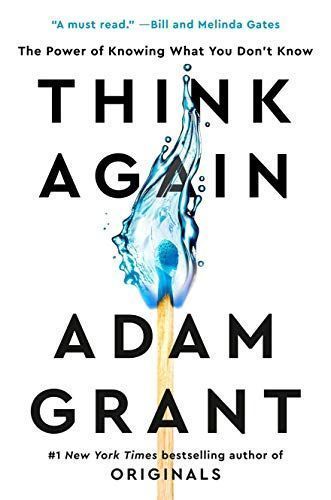
Think Again The Power of Knowing what You Don't Know
Examines the critical art of rethinking: learning to question your beliefs and to know what you don't know, which can position you for success at work and happiness at home. It is a book about the benefit of doubt, and about how we can get better at embracing the unknown and the joy of being wrong
Reviews
Christian Bager Bach Houmann@cbbh
Elisavet Rozaki @elisav3t
Hooman Rostami@hooman
matej yangwao@yangwao
Radimir Bitsov@radibit
Rita Lisboa@cotchabamba
Ali Angco@aliangco
Tara C@champagnedreams
Felipe Saldarriaga @felipesaldata
Omnya Ahmed@omnyaahmed
Chad McElligott@chadxz
Nelson Zagalo@nzagalo
Megan@megcow
Benjamin Harrison@c0nsilience
Vivian@vivian_munich
Ritik Sahni@ritiksahni
Caitlin Snyder@caitlinrose
Manohar@manohar
Hooman Askari@hoomanaskari
Ervin Szerdocz@ervin
Randy Robbins@rjrobbins2
Jose Quaresma@josequaresma
Emily Wood@emwood95
Mahtab Sabet@mahtab
Highlights
Radimir Bitsov@radibit
Radimir Bitsov@radibit
Page 29
Sai Bommisetty @infinexcio
Page 165
Rebecca Zucker@becca_zucker
Rebecca Zucker@becca_zucker
Rebecca Zucker@becca_zucker